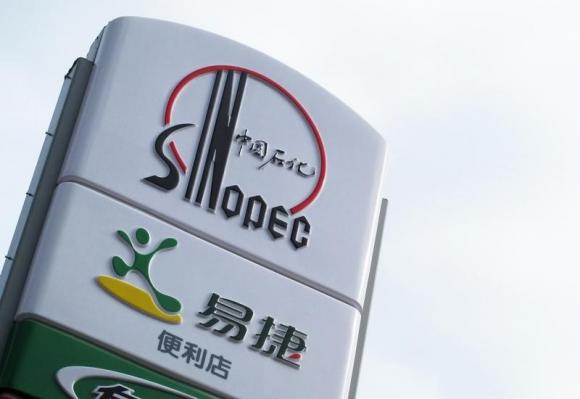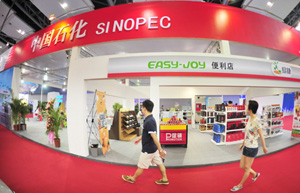 |
|
A Sinopec logo is seen on top of a logo of Easy Joy store at a gas station in Beijing, Sept 16, 2011. [Photo/Agencies] |
Sinopec Corp will sell a 107.1 billion yuan ($17.5 billion) stake in its retail unit to a group of 25 Chinese and foreign investors, Asia's top oil refiner said in a statement on Sunday.
The sale, the country's biggest privatization since president Xi Jinping came to power, comes as China's government pushes to restructure its State-owned enterprises by bringing in private capital and expertise.
Leading investors on the deal to buy a combined 29.99 percent of Sinopec include one of China's biggest asset managers Harvest Fund Management Co Ltd taking 15 billion yuan with its subsidiary Harvest Capital Management. China Life Insurance and a consortium that includes People's Insurance Group of China Co Ltd and Tencent Holdings Ltd are each taking 10 billion yuan stakes.

|
 |
Asia private equity firm RRJ Capital, founded by former Goldman Sachs and Hopu Investment Management dealmaker Richard Ong, is among foreign investors in the deal with a 3.6 billion yuan stake.
Sinopec's marketing and distribution unit, which includes a wholesale business, has more than 30,000 petrol stations, over 23,000 convenience stores, as well as oil-product pipelines and storage facilities.
The deal will boost the value of the low-margin marketing business, bolster the group's finances and reinforce investment in exploration and production.
Sinopec's chairman, Fu Chengyu, has previously said the investors are expected to bring in expertise and ideas to improve non-fuel sales at its petrol stations.
Unlike in Western markets, where non-fuel businesses - convenience stores and things like fast food or car washing - can account for more than half of a station's profits, more than 99 percent of Sinopec's retail sales come from petrol.
In the past few months Sinopec has signed agreements with multiple Chinese companies to make more use of its petrol stations and provide more services to consumers.
In August the company signed a preliminary deal with internet giant Tencent to introduce digital commerce to the retail arm.
